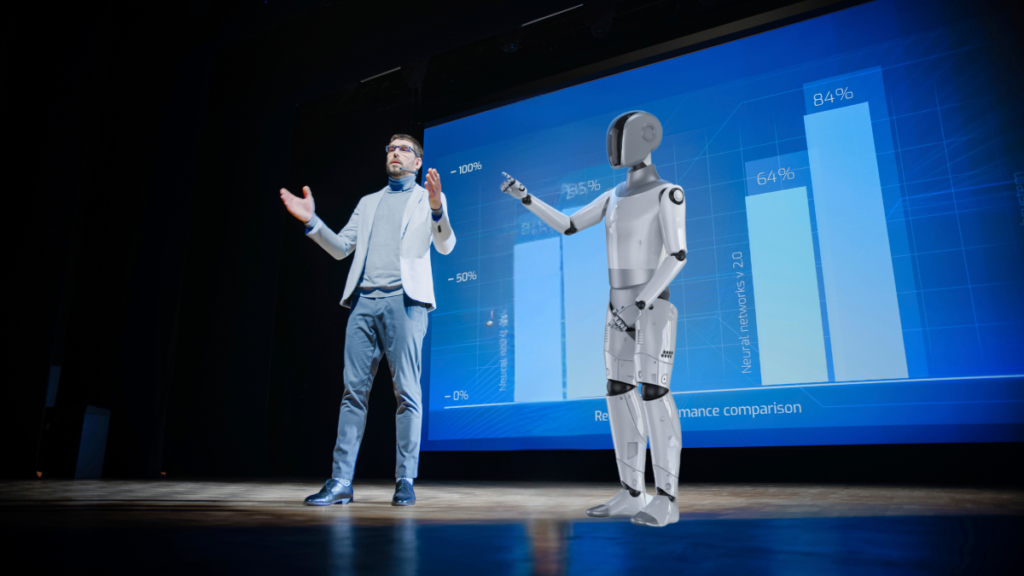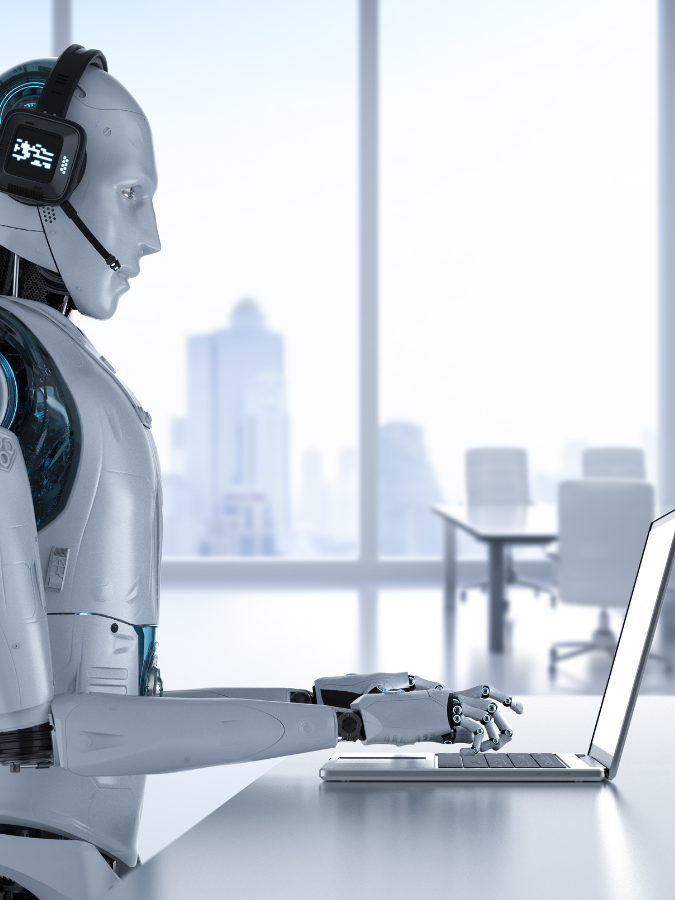It usually starts late at night.
A tired founder. A messy desk. Maybe a cold cup of coffee nearby.
There’s no team yet. No investors. Just an idea that won’t let go — and a laptop waiting for something to happen.
Instead of dialing a friend or scribbling on a whiteboard, today’s entrepreneur opens a chat window and types:
“Help me name this company.”
The reply comes instantly. Dozens of options. Some sharp, some forgettable — but it’s a start.
The founder smiles. This “someone” is quick, never complains, and doesn’t charge a dime.
This isn’t science fiction. It’s how a surprising number of businesses are being born right now — with bots playing a much bigger role than most people realize.
Not as tools. Not as sidekicks.
As partners.
The new ‘silent partner’ no one saw coming
Not long ago, launching a business meant finding the right people — a designer, a copywriter, a marketer, a developer.
Today, a growing number of entrepreneurs are finding those roles already filled. They sit down, open a few AI tools, and start building.
One founder, fresh out of college, managed to launch an entire digital product line in just six weeks. He didn’t hire a team. He didn’t even outsource. He asked GPT-5 to write product descriptions, trained a support bot to answer customer questions, and let Midjourney create the marketing visuals.
The result? A polished brand that looked like a seasoned team had been working behind the scenes.
But there was no team. Just a founder and a few smart bots pulling more than their weight.
This is the quiet shift happening in entrepreneurship. AI isn’t hovering in the background anymore. It’s pulling up a chair, taking notes, and getting work done.
For solo founders, the feeling is electric — and strangely comforting. Even without human partners, they’re no longer building alone.
Idea generation to execution: bots are taking seats at the strategy table
It starts with a single prompt.
An entrepreneur types, “Give me 20 brand name ideas for an eco-friendly skincare line.”
In seconds, a flood of names appears, some good enough to trademark.
Moments later, they ask for a logo concept. A bot sketches one out. Another generates a basic Shopify store layout.
By the end of the afternoon, the founder isn’t just dreaming about a business — they’re staring at it.
Some founders are even skipping traditional MVPs. They’re working with AI to create first versions of apps, websites, and digital products that feel remarkably close to finished. One solo developer used AI coding assistants to roll out a functioning SaaS tool in under a month — from wireframes to beta launch — while still working a full-time job.
What used to take teams of specialists now happens in the quiet of a spare bedroom, with a few bots standing in for the usual boardroom full of voices.
The lines between “assistant” and “co-founder” are starting to blur.
The rise of AI-built brands
A few years ago, you needed capital and a small team to make a brand feel legit. Now, a single founder with a clear vision and a handful of AI tools can create something that looks—and sells—like the work of a seasoned agency.
There’s a woman in Texas who built a wellness newsletter from scratch. She used AI to write the content, design the layout, and schedule posts weeks in advance. Her subscriber list crossed 10,000 before she spent a dollar on marketing.
In Brooklyn, a teenager created a clothing brand. He asked a bot to generate design ideas, then ran those prompts through an AI image generator. He printed what worked, set up a store with AI-written copy, and started selling before the semester ended.
These stories aren’t exceptions anymore. They’re signals.
We’re watching the emergence of brands with no traditional structure behind them—no agencies, no launch teams, no seed funding. Just smart ideas and smarter tools working in sync.
And the results don’t look homemade. They look professional. In some cases, too professional, leaving people stunned when they learn it’s all being run by one person and a well-curated tech stack.
AI isn’t just speeding things up. It’s lowering the barrier between a good idea and a polished brand.When the bot gets a title: AI ‘co-founders’ and the legal gray area
It was supposed to be a joke.
A founder posted a screenshot on Twitter:
“Meet our newest Co-Founder & Chief Ideas Officer: GPT-4.”
The post went viral. Thousands of likes. Dozens of comments saying, “Honestly, same.”
Behind the humor, a real question was starting to form:
If a bot is helping you build your business, what does that actually mean?
Some entrepreneurs are giving AI tools real credit — even listing them on company websites as “team members.” A few are pushing it further, joking about offering bots equity. It’s playful, but it hints at something serious.
When an AI generates your brand identity, crafts your marketing voice, or even codes your product, who owns the output?
It’s a murky space.
In most jurisdictions, AI can’t legally hold ownership or responsibility. Whatever it creates still belongs to the human guiding it. But the emotional side? That’s harder to pin down.
Founders are starting to feel attached to these invisible partners. They aren’t just tools anymore. They’re collaborators in the early, messy stages of building something from nothing.
And while no bot will sit in a board meeting—or sign a contract—their fingerprints are all over the blueprints of tomorrow’s startups.
The limits that still need human grit
AI can write, code, design, plan, even pitch — but it can’t feel panic at 3 a.m. when a payment system fails before launch.
It can’t navigate a tense investor meeting.
Or read a room.
Or notice when something feels off, even if all the data says it’s fine.
One founder built an online learning platform with help from three different AI tools. Everything moved fast. The branding looked sharp. The content was clean. But when it came time to build a community around the product, the bots went quiet.
The founder realized that the messy, human parts of business — trust, timing, tone — still needed a real person at the wheel.
AI could help launch. It could suggest. But it couldn’t lead.
There’s a certain grit that can’t be outsourced. It’s the gut feeling that tells you when to pivot, or when to keep going even when nothing is working.
No bot can carry that.
A new era of entrepreneurship, but with the oldest lesson intact

The tools have changed. The hustle hasn’t.
Entrepreneurs are still chasing ideas with no roadmap, still taking risks that make no sense on paper. The difference is, now they have a co-pilot who never sleeps and never runs out of suggestions.
AI is helping people skip the slow parts. Skip the guesswork. Skip the stage where nothing looks real yet.
But it’s not skipping the heart of the process.
That part still belongs to the founder. The one who dreams it, builds it, obsesses over it, and fights to keep it alive when it’s easier to quit.
A bot can be a brilliant sidekick. Maybe even a co-founder in spirit. But the guts of every great business — the resilience, the obsession, the human instinct — still have to come from us.
That hasn’t changed. And probably never will.




